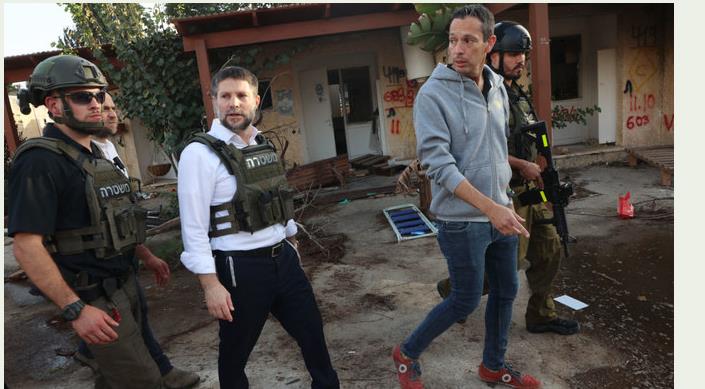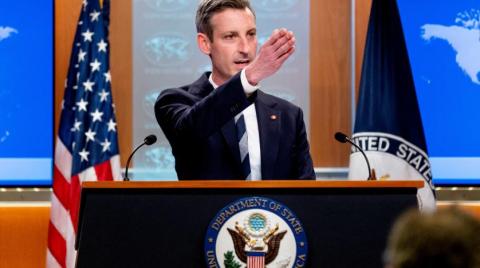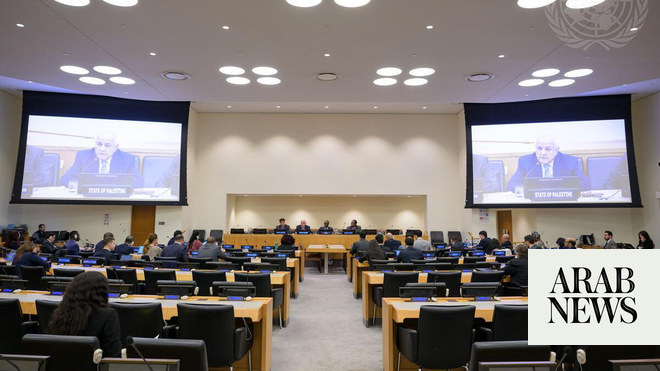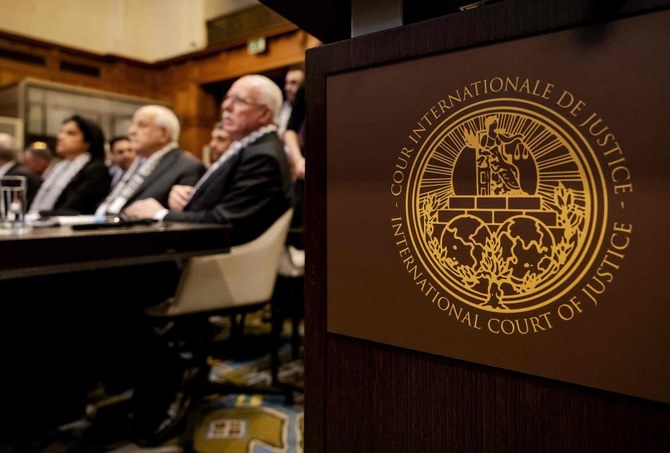
The US has urged the international court of justice (ICJ) in The Hague not to issue a ruling calling for Israel’s immediate withdrawal from the occupied Palestinian territories, arguing that Israeli security had to be taken into account in any solution to the conflict.
“Any movement towards Israel’s withdrawal from the West Bank and Gaza requires consideration for Israel’s very real security needs,” Richard Visek, the state department’s acting legal adviser, told the ICJ judges.
Visek was stating the US position in ICJ hearings this week first requested by the UN general assembly in 2022. They are intended to establish the legal status of the occupied territories, and the implications for the international community’s approach to the conflict.
More than 50 states are due to present their stances in the week-long hearings, which have further emphasised the isolation of Israel’s few supporters, following a UN security council hearing on Tuesday in which the US was the lone vote against a draft ceasefire resolution, with the UK abstaining. The US and UK are expected to be virtually alone again at the ICJ hearings in urging restraint in its ruling on Israel’s occupation.
The ICJ is expected to issue its opinion by the summer, and it could have a far-reaching political and legal impact if it rules the occupation to be illegal. It could for example have implications for governments attempting to ban boycott campaigns aimed at products made in the occupied territories. It could also further increase the geopolitical costs to the US and UK in continuing to defend Israel on the world stage.
In laying out the US argument on Wednesday, Visek argued that both the UN security council and general assembly had established the path to a peaceful resolution through negotiations, which would fundamentally be about an exchange of land for peace.
“An enduring peace requires progress on both of these balanced elements,” he told the judges. “They have asked you to try to resolve the whole of the dispute between the parties through an advisory opinion, addressed to questions focusing on the acts of only one party.”
Visek insisted that Washington was not ruling out a role for the ICJ to play in the conflict but was instead appealing to the court to “carefully calibrate its advice” in light of the eventual need for a negotiated solution.
Most of the other states offering submissions in the case have argued the opposite: that the absence of negotiations in the face of the Israeli government’s adamant opposition to the establishment of a Palestinian state requires a decisive intervention from the ICJ.
“That is the central dispute between the US and many other states, about the prudence of the court advising on certain questions,” said Adil Haque, a professor at Rutgers Law School.
“Many other states have been saying, both today and over the last few days: what negotiations? There is no negotiation process going on. The Israeli government is not interested in a negotiation process that will lead to a solution and so there’s no reason for the court to pull its punches.”
Haque argued that there was a role for the ICJ to play in laying down the legal parameters for any negotiated settlement.
“Typically, in a negotiation, I have a legal right to something that you want, you have a legal right to something that I want, and we negotiate an exchange,” he said. “So the court can play a constructive role by telling the parties what their legal rights are, and then leaving it to them to negotiate from that legal baseline.”












